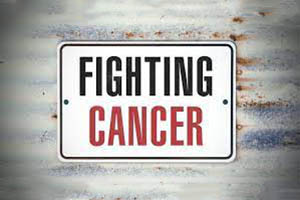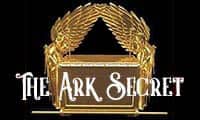Tech Student’s Battle with Cancer
 Virginia Tech student, Shane Burke’s story on battling cancer and how he kept a positive attitude and sought support from those around him. Shane Burke is currently a Junior studying Business Information Technology at Virginia Tech. Burke grew up in West Chester, PA, with two siblings, Kyle and Kristen and two loving parents, Kevin and Sue. To an outsider, Burke seems to be a normal college student but in 2021 Burke fought a long, hard battle against cancer.
Virginia Tech student, Shane Burke’s story on battling cancer and how he kept a positive attitude and sought support from those around him. Shane Burke is currently a Junior studying Business Information Technology at Virginia Tech. Burke grew up in West Chester, PA, with two siblings, Kyle and Kristen and two loving parents, Kevin and Sue. To an outsider, Burke seems to be a normal college student but in 2021 Burke fought a long, hard battle against cancer.
On April 29, 2022, I got the chance to meet Shane Burke and talk to him about his brave battle with cancer. I sat with him to talk on the crowded beach in Myrtle Beach, South Carolina during Pi Lamda Phi’s fraternity formals. Even though the loud background noise of waves crashing and other conversations happening around us, I found myself fixated on the inspiring story he told me.
Burke is very charismatic, he has a very fun and outgoing aura about him. He’s the kind of friend you would want around all the time. He’s funny, caring, and always has a bright smile on his face. Even while talking to Burke about this tragic story, he managed to keep his positive attitude and add little sparks of humor into the conversation to keep such a heavy topic lighthearted.
As we sat in the sun, with our toes in the hot sand and our skin crisped from the burning sun, Burke began telling me his story.
On January 12, 2021, after hours spent in the hospital due to severe headaches, Burke found out that he had a cancerous mass on his cerebellum. The news was shocking and traumatic. This is how Burke describes finding out about the tragic news from his doctor.
“Staring with a blank face for 2 minutes was the only reaction suitable,” Burke said “I was in so much disbelief that I wanted a second opinion.” Burke was then transferred to Jefferson University Hospital in Philadelphia for a second opinion. The results were devastatingly the same. Burke was now faced with the grievous truth that he had cancer and that there was a long and ugly battle ahead of him. Burke kept a positive attitude though and was ready for the battle ahead.
Immediately after hearing the news, Burke had almost no time to process it before he was put on heavy medication to prepare for surgery. Burke describes to me the intensive medications he was put on and how they affected him. “I was discharged from Jefferson Hospital with many medications and patiently waited for a call for my scheduled brain surgery,” Burke said “The medications were endless for the next 9 months. The main medication I was administered was a steroid. This steroid eliminated all headaches but did come with a cost: constant acne and weight gain. On January 15, when I found out about the cancer, I weighed 155 lbs. By the time I was told to stop taking the steroid, I reached a peak weight of 172 lbs.”
Burke found out about the cancerous mass on January 12 and was scheduled to have surgery to remove it on January 20. He had just over a week to comprehend the news and get ready for a life-threatening surgery.
“On January 19, I received a call with instructions for pre-surgery,” Burke said. “I was instructed to not eat food or drink water after midnight the night before. On January 19, at 11:50 p.m., I had my last sip of water at the time, not knowing if it could have been the last sip ever.”
According to the Cancer Research Organization, craniotomy is the most common type of operation for a cancerous brain tumor. A craniotomy is performed by highly educated and skilled surgeons and is highly effective in removing cancer and moving towards recovery.
As stated by John Hopkins Medicine, side effects of a craniotomy include: infection, blood clots, seizures, muscle weakness, brain swelling, memory loss, and loss of motor skills. Above all other risks, loss of life is another small but significant side effect of the surgery.
“The arrival for surgery was 5:30 a.m., which meant 4:00 a.m. wake up and on the road by 4:15 a.m. I arrived at 6:00 a.m. and was put into a hospital bed in the preparation room,” said Burke. “One by one each medical personnel entered the room to hand me a form and asked me to read and sign. Statements ranging from losing motor skills and memory, and the last one at the bottom of each sheet: my life. At 6:43 a.m., I was all set to go into surgery: all wiped down with chemical wipes, IV placed, and a hairnet put on my head.”
This surgery is very intensive and involves cutting open the skull and removing an area of bone allowing an opening to the cerebellum to remove the mass. Although this surgery comes with great risks, it is one of the only options to remove the mass.
Burke keeps a positive attitude and uses his sense of humor as he describes to me his last few memories before going under anesthesia.
“My neurosurgeon walked through both doors, it looked like he was going to a wedding, dressed in a full suit just to change into a gown soon. He looked over at my mom as she was in great worry and said, “Don’t worry he is only going to have a bad haircut when he gets out.” And just like that, I was wheeled back with medical staff on both sides of the bed moving me to the operation room.” said Burke.
“As I moved further away from my mom, I made a promise to her and said: “I’ll see you soon.” I enter the operation room and it looked like it was straight out of a movie. Machines everywhere with a window for those outsides watching the computers. Next up, was anesthesia. A great game that I like to play is trying to fight off the anesthesia. I tried to fight it off, but it wasn’t long until I dozed off after convincing my surgeon assistant, a Penn State graduate, that Center Street tailgates were way better than Penn State tailgates.”
The surgery took around 6 hours to complete. Due to Covid regulations, Burke’s mother was only allowed thirty minutes in the room with him after his surgery. For the next 2 days, Burke was isolated in the ICU. Thankfully though the tumor was completely removed but Burke
was not back to his normal self just yet.
“It felt like trying to walk for the first time as a child,” Burke said. “ I had to learn to get my feet under myself, stand up, and simply move my neck.” Sadly, Burke’s story does not end here. Only 12 days after this intensive surgery, Burke got a devastating phone call letting him know he had medulloblastoma.
“I’ll never forget this day, I was diagnosed with medulloblastoma. Medulloblastoma is a primary central nervous system tumor – a brain tumor.” Said Burke. “There are different strains of treatment that each brain cancer patient will receive, but my designated path was the St. Jude’s Medulloblastoma Clinical Trial, which began with 30 days of proton radiation therapy and finished with four cycles of chemotherapy.”
For the next few months, Burke made St. Judes Children’s hospital his second home. Burke walked me through the obstacles of what he went through during radiation. “For the first 3 weeks, I did not see any side effects, however, in the last 3 weeks I began to lose my hair in chunks, lost all my taste, and lost my energy. My face became puffy, acne started increasing, and my weight started increasing,” Burke said. “My favorite foods slowly became less satisfying and less appetizing. I lost my normal smell and taste until September. In March, I had my last solid food and had to transition to a different diet to get nutrients down. This new appetite was pudding, apple sauce, yogurt, Boost nutritional drinks, and Pedialyte pops.”
Throughout this disastrous time, Burke had a constant support team back at Virginia Tech cheering him on the whole time – his brothers in Pi Lamda Phi. During this journey the brothers were constantly sending Burke messages of support and love, keeping him and his family in their thoughts and prayers. Many brothers even shaved their heads to honor Burke.
“In between radiation and chemotherapy, I made a surprise visit back to school to visit my Pi Lambda Phi brothers. I felt myself again.” Said Burke. “Constant praise, support, and love from my brothers for a lifetime.”
The Pi Lambda Phi Fraternity decided to dedicate its Fall philanthropy to brain cancer. The philanthropy raises money for St. Jude Research Hospital. On October 8, 2021, the fraternity hosted PiLam Jams at Centro’s bar where over five thousand dollars was raised.
The trip back to Virginia Tech uplifted Burke’s spirits, but his journey was not over yet.
Burke still had 4 rounds of chemotherapy to conquer. Burke describes chemotherapy as the hardest part of his journey. During this time he went through a loss of appetite, no energy, no sleep, and constant nausea. This, however, was the final stepping stone. According to the National Cancer Society, Chemotherapy involves the killing of fast-growing cells, but because this medicine is spread throughout your whole body it can also kill healthy cells. Damage to healthy cells is what causes nausea, hair loss, and other sicknesses.
Burke finished his last round of chemotherapy on August 9. This long and treacherous journey was finally at an end.
“I rang the bell. Cancer treatment is finally over,” Burke said. “It was a long battle, full of highs and lows, from a full head of hair to a bald head, we did it.”
The cancer was completely gone. Burke was ready to go back to his normal life, and he did. Burke now plans to participate in the American Cancer Society HEALED movement, to improve cancer awareness globally.
Burke’s story is so incredibly inspiring, it shows that with a positive attitude, a great mindset, and a whole team of supporters behind you, you can get through anything. Burke is a role model to everyone around him; he was able to bring his whole fraternity together to rally for his cause and is an inspiration to many other kids battling cancer that they too can get through it.
Burke is now just another member of Pi Lamda Phi enjoying a beach vacation with his fraternity brothers.
–by Bella Demosthenous










September 23, 2022 @ 5:11 pm
Great success story. Good to see someone taking the time to document Burke’s struggles and how he overcame cancer. Very Inspiring!